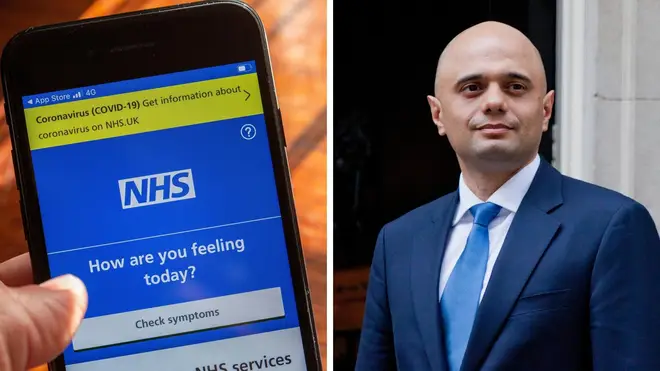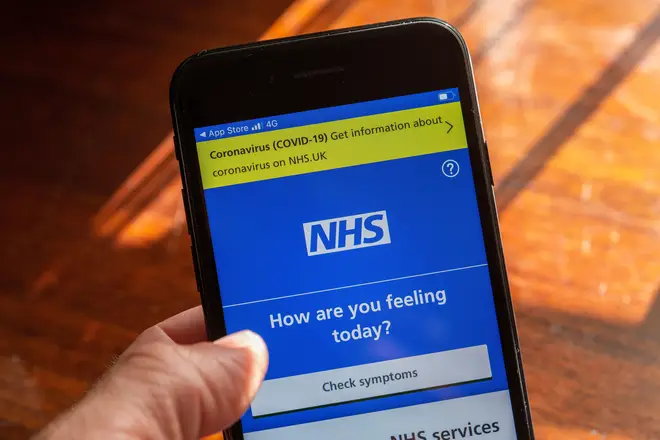
James O'Brien 10am - 1pm
29 June 2022, 09:29 | Updated: 29 June 2022, 10:52

The NHS app will be revolutionised to allow people to receive messages from their GP, book appointments online and be treated at home in "virtual wards".
Under the Government's plans for a modern NHS, the app will be revolutionised to help free up space in hospitals and offer people in England more personalised care.
By March 2023, more users will receive messages from their GP and be able to see their medical records and change or cancel hospital appointments through the app.
People will also be able to book Covid vaccines and have virtual consultations to digitise healthcare.
And by March 2024, the app should offer face-to-face video consultations in "virtual wards".
Read more: Killed Zara Aleena believed women should be safe to walk home, grieving family says

NHS GPs can't cope with 'undoable workload'
A further 500,000 people are to use remote monitoring to keep an eye on their conditions from home, which will free up hospital beds and frontline workers' time, the Department of Health and Social Care (DHSC) said.
By September 2024, patients will be able to complete hospital pre-assessment checks from home.
Health and Social Care Secretary Sajid Javid said: "We are embarking on a radical programme of modernisation that will make sure the NHS is set up to meet the challenges of 2048 - not 1948, when it was first established.
"This plan builds on our data strategy to revolutionise digital health and care, which will enable patients to manage hospital appointments from the NHS app and take more control of their own care at home, picking up problems sooner and seeking help earlier.

"Ensuring more personalisation and better join up of the system will benefit patients, free up clinician time, and help us to bust the Covid backlogs."
Mr Javid aims to have three-quarters of the adult population in England registered with the NHS app within the next two years.


'Treat GPs with the respect and adoration they actually deserve.’
Dr Timothy Ferris, national director of transformation at NHS England and NHS Improvement, said the plan "sets out an ambitious vision for a future where the NHS puts more power and information at patients' fingertips, and staff have the tools they need to deliver better and more joined-up services for those who need them".
The DHSC will create a national digital workforce strategy with 10,500 more positions created in the data and tech teams.
Dr Pritesh Mistry, digital fellow at the King's Fund, warned that the biggest risk to the Government's vision is the "lack of capacity among the health and care workforce".
"NHS and social care staff are already under intense pressure and many will wonder where they will find the time needed to learn the new skills to use technologies, change organisational culture to work better with tech innovators, and avoid the pitfall of implementing new tech without adequately consulting the staff and patients who will use it".